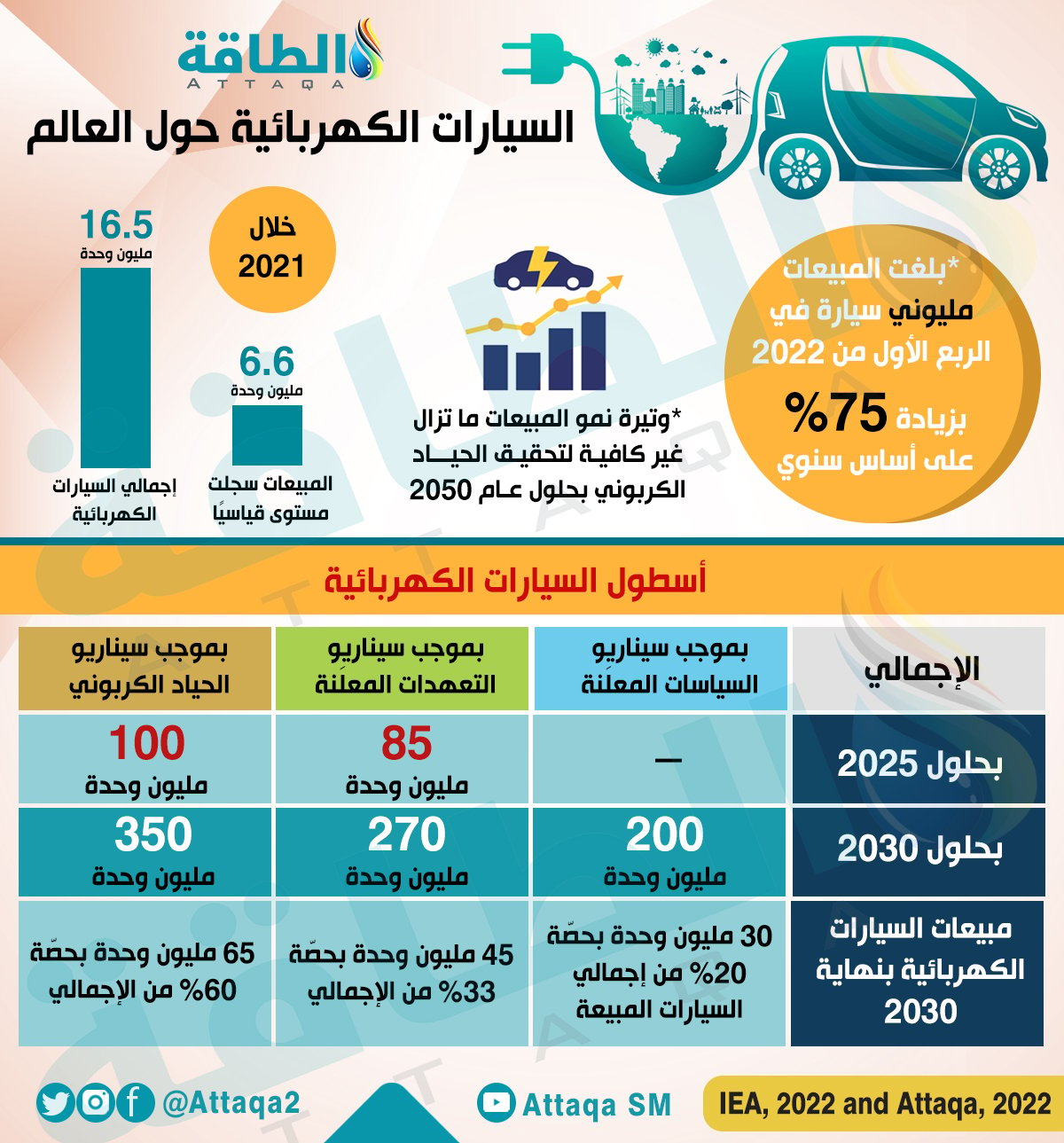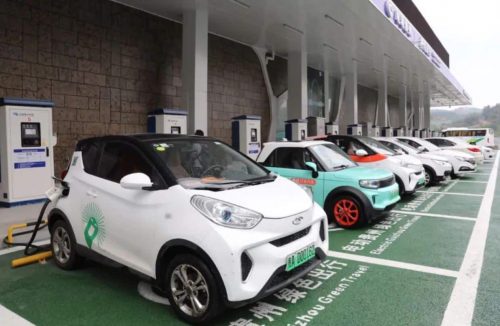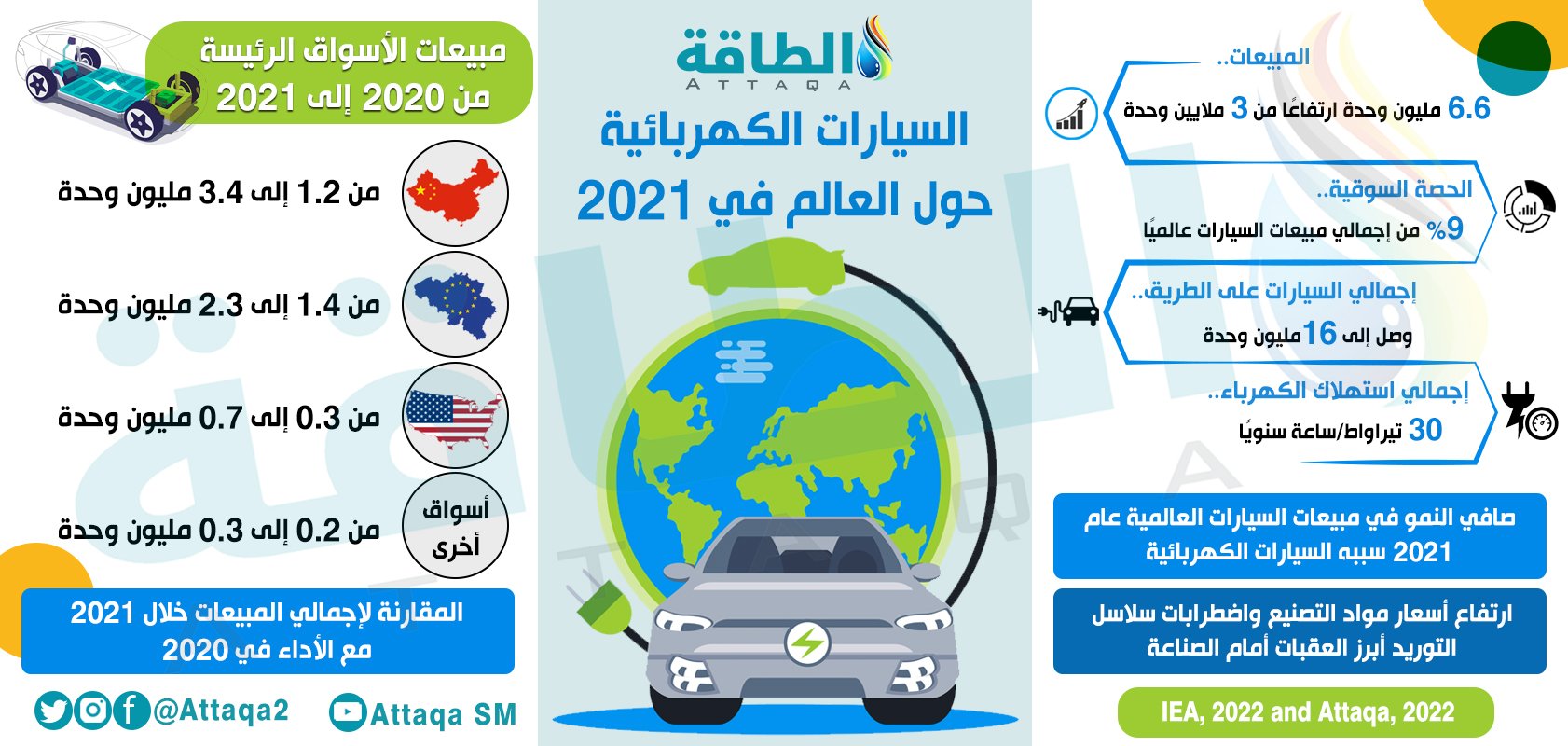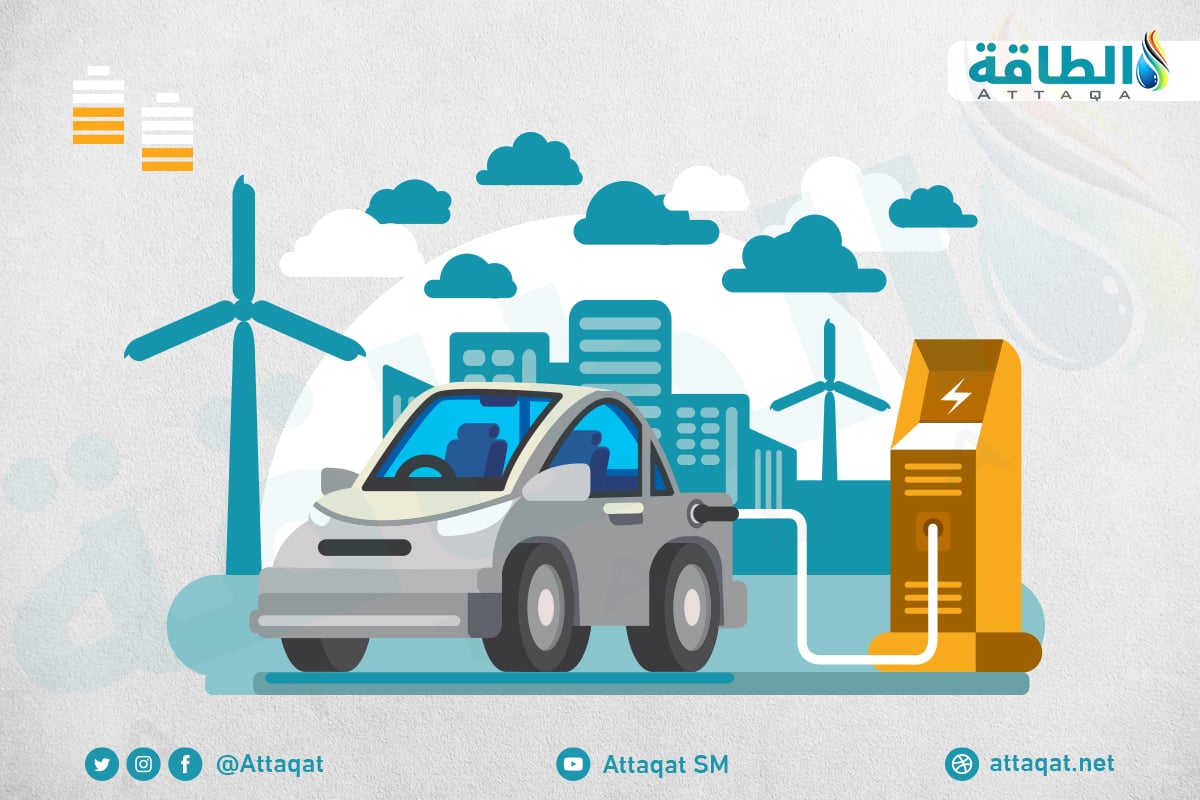Read in this article
- Electric vehicle charging costs are close to gasoline prices
- Taxes on public charging points are one of the reasons for their high costs
- The rise in the price of gas increases sales of electric cars
- Half of the electric cars sold globally are in China
With the momentum witnessed by the electric car industry and the enactment of laws by many countries stimulating its spread, how does the severe economic crisis in most countries of the world affect this sector?
The lower cost of charging electric cars compared to internal combustion vehicles, coupled with government incentives, are among the main factors that have helped grow electric car sales.
Policy makers in many countries are trying to implement electric vehicles as an alternative to internal combustion ones, with the aim of reducing emissions from the transport sector, one of the most pollute the environment.
Recently, there have been some concerns that some factors, such as the sharp rise in electricity prices, the decrease in government subsidies and the supply chain crisis, may weaken the global electric car market.
Shipping fees
Although electric cars are emerging as a low-cost alternative in terms of shipping to fossil fuels, with the ongoing crisis and the continuing increase in prices oil The cost of recharging electric batteries is no lower.
A report from RAK Automotive Services confirms, according to the BBC BBC, that electric car charging costs are approaching gasoline prices; Due to the high energy prices.
In its report, the British company said: “Owners of electric vehicles using public charging points are paying the cost of petrol cars per mile or so.”
While it is cheaper to charge electric cars at home than at public fast-charging points, the average consumer’s electric bills are also on the rise.
The report expresses fears that the high cost of shipping and its approach to gasoline prices would cause people to refrain from buying environmentally friendly electric cars.
The RAC explains that the cost of charging an electric car through public express charging points in Britain has increased by 42% since May (2022), averaging $ 63.29 per kilowatt hour, a figure just below the cost of gasoline.
These figures show that the gap between charging and gasoline prices is narrowing due to the huge increase in electricity prices, which means that people who use public points for fast charging are the hardest hit.
Simon Williams, spokesperson for RAK Automotive Services, said: “The government subsidy package for household electricity bills is more beneficial to those who charge their vehicles at home … but those who rely on charging points. audiences face an even worse situation. “
Meanwhile, Williams believes the UK government’s gas and electricity price caps for businesses will lead to lower electricity bills and should therefore lead to reductions in charging point prices in the coming weeks.
The report also indicates that taxes imposed on public charging stations are one of the reasons for their higher costs than domestic charging, asking for a reduction in the value added tax at public charging stations to 5% instead of 20%.
In turn, the founder of the British campaign for electric cars, Quentin Wilson, has asked the government to act on shipping costs, put an end to the increases and reduce the value added tax.
And he warned that if the British government does not, the promises of a free future emissions Clean air and energy independence will lead to nothing.
Gas boosts sales of electric cars
On the other hand, he saw a report published by a magazine Forbes The sharp rise in gas prices is a strong driver towards the increase in electric car sales recently.
The report points out that the sharp rise in gas prices in the last period has led to a jump in demand for electric cars and their sales reaching record levels.
At the same time, the prices of used electric vehicles have also increased due to the continuing shortage of supplies necessary for the production of new electric cars.
The following infographic, prepared by the Energy Research Unit, tracks sales of electric vehicles around the world during the first quarter of this year (2022), citing data from the International Energy Agency:

Government support is waning

China stands out as the country that is making the most efforts through policies to implement or support its progress, working on the development of electric cars, making it a thriving market for this type of car.
The figures show that globally half of electric vehicles are sold in China and nearly a quarter of newly registered cars in Beijing are electric or hybrid vehicles, which means they are ahead of Europe and the United States.
This is mainly due to the incentives and benefits offered by the Chinese government for a decade.
The China Passenger Car Industry Association predicted, in a report released last July, that about 6 million new electric cars would be sold this year.
During the month of September, Chinese sales of all new electric vehicles – battery cars, hybrid cars and fuel cell vehicles – increased 93.9% year-over-year.
Although the Chinese market is considered the most competitive for the electric car industry, it is feared that the value of subsidies provided by the Chinese government will decrease and approach the end of next year (2023) and cause a decrease in the attractiveness of individuals to this type of vehicles.
Electric vehicle charging infrastructure is also unevenly distributed and the government has recently reduced charging stations; Due to the low production electricity caused by the drought facing the country, which poses a threat to the growing desire of individuals.
All of this has led some analysts to prefer hybrid electric vehicles to battery-powered cars alone.
The following infographic shows, according to the International Energy Agency’s Energy Research Unit, the developments of electric vehicles around the world over the past year (2021):

Related topics.
Read also ..


